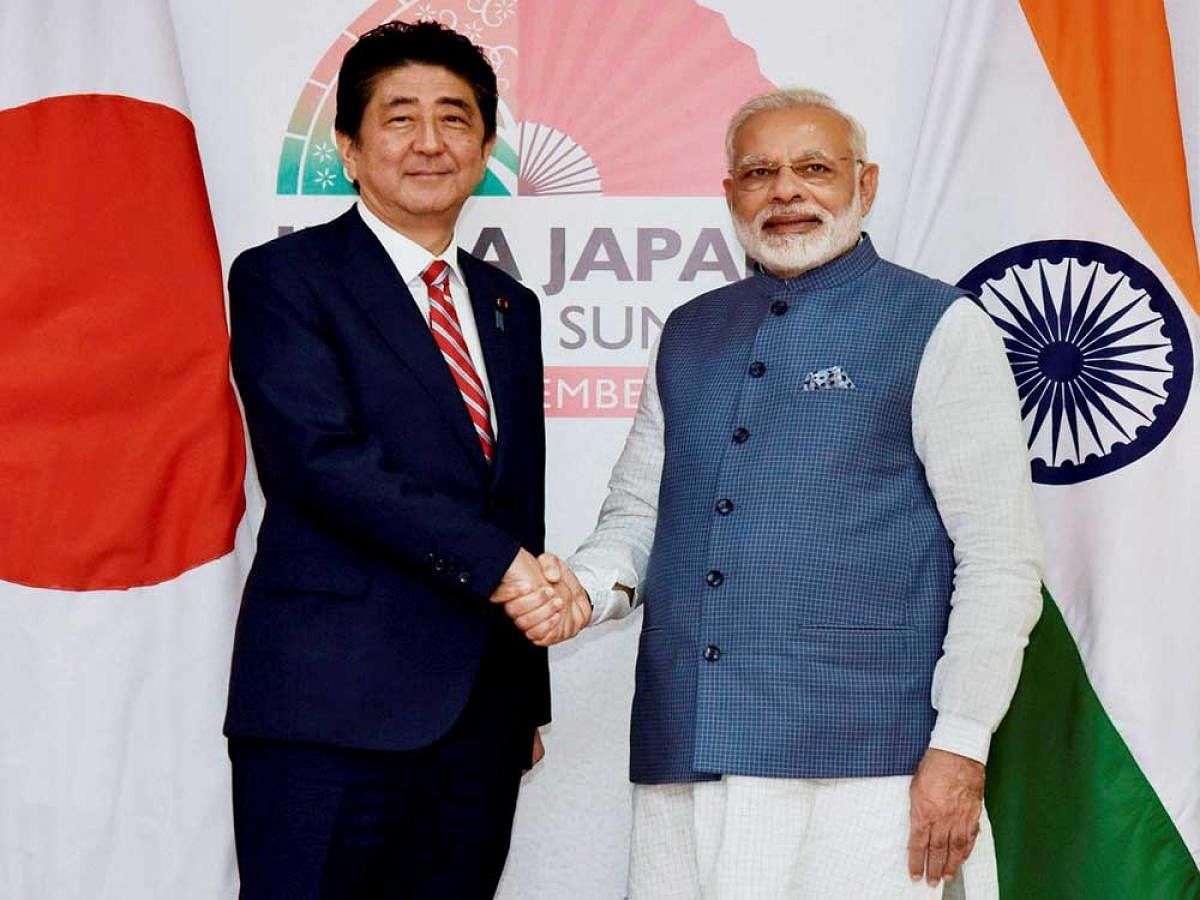
India and Japan may early next week ink a pact to step up cooperation between the Navies of the two nations to keep watch across Asia-Pacific for any maritime security threat, including the warships of China.
Prime Minister Narendra Modi and his Japanese counterpart Shinzo Abe will hold the 13th India-Japan summit in Tokyo on October 28 and 29. The summit may see substantial progress in talks between the two sides for an agreement, which will lay a framework for expanding Maritime Domain Awareness (MDA) cooperation between Indian Navy and Japan Maritime Self Defence Force.
Kenji Hiramatsu, Japan's envoy to India, confirmed that the talks on the agreement have reached an advanced stage and the two nations were expected to ink the agreement soon.
Once India and Japan sign the agreement, it will pave the way for the navies and coast guards of the two nations to keep watch across Indian Ocean and Western Pacific and share real-time information about any security threat – be it a boat of pirates or a warship of China, sources told the DH in New Delhi.
The better Maritime Domain Awareness is key to respond to any threat to national security and sovereignty as well as for launching operations to evacuate sailors in distress or for humanitarian assistance and disaster relief, sources said.
The Indian Navy of late spotted a Type O39A Yuan-class submarine of People's Liberation Army Navy (PLAN) of China in the Indian Ocean. This is the first time a Chinese PLAN submarine was detected in the Indian Ocean after the last year's military stand-off between India and China in Doklam Plateau in western Bhutan. The PLAN had 14 warships in the Indian Ocean for about two weeks last August.
China had deployed as many as seven submarines in the Indian Ocean during the 72-day-long stand-off in Doklam Plateau.
The PLAN started deploying warships in the Indian Ocean in 2013, professedly to support anti-piracy operations in the Gulf of Aden.
New Delhi is also worried over the “String of Pearls” strategic assets China is building around India in the Indian Ocean region.
The US, Japan and other nations in Indo-Pacific too accused China of undermining the “rules-based order” in the region. The communist country's territorial disputes with its maritime neighbours in East and South China Sea and its reluctance to resolve the disputes in accordance with the 1982 United Nations Convention on the Law of Sea (UNCLOS) often prompted the other nations, not only to criticize it for not adhering to the international laws and flexing military muscles, but also to call for “rules-based order” in Indo-Pacific.
Since 2015, Japan's Maritime Self Defence Force has been participating in Malabar Naval Exercise, which was earlier a bilateral war drill by Indian and American navies.
When Modi and Abe held the last summit at Gandhinagar in Gujarat in September 2017, they had agreed to align Japan’s Free and Open Indo-Pacific Strategy with India’s Act East Policy, “including through enhancing maritime security cooperation, improving connectivity in the wider Indo-Pacific region and strengthening cooperation with ASEAN (Association of South East Asian Nations).
